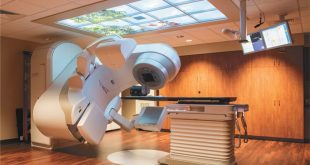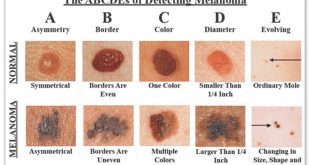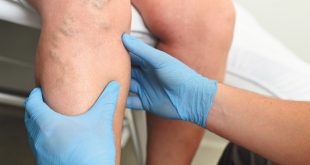By Dr. Nam Dinh, MD, FAAOS
 Smoking has long been recognized as a major public health hazard, with a laundry list of adverse health effects. Among the most devastating consequences are Chronic Obstructive Pulmonary Disease (COPD) and lung cancer, both closely linked to smoking. Additionally, the negative effects of nicotine on wound healing underscore the crucial need to quit smoking prior to surgery.
Smoking has long been recognized as a major public health hazard, with a laundry list of adverse health effects. Among the most devastating consequences are Chronic Obstructive Pulmonary Disease (COPD) and lung cancer, both closely linked to smoking. Additionally, the negative effects of nicotine on wound healing underscore the crucial need to quit smoking prior to surgery.
COPD: A Slow and Silent Killer
COPD is a progressive lung disease that encompasses conditions like chronic bronchitis and emphysema. The primary culprit behind COPD is tobacco smoke, responsible for nearly 90% of all COPD cases. Smoking introduces harmful chemicals and irritants into the respiratory system, leading to inflammation and damage in the airways. This can result in a reduced ability to breathe, chronic coughing, and impaired quality of life.
Lung Cancer: A Lethal Consequence of Smoking
Lung cancer remains one of the deadliest cancers globally, and smoking is its leading cause. The carcinogens in tobacco smoke, such as benzene and formaldehyde, can initiate genetic mutations in lung cells, leading to the uncontrolled growth of cancerous tumors. Sadly, lung cancer often remains undetected until advanced stages, contributing to its low survival rate.
Nicotine’s Role in Wound Healing
While the lung-related dangers of smoking are widely known, the negative effects of nicotine on wound healing are less publicized but equally significant. Nicotine, a highly addictive compound found in tobacco, narrows blood vessels and reduces blood flow. This constriction limits the delivery of essential nutrients and oxygen to healing tissues, slowing down the body’s natural recovery process.
Furthermore, nicotine disrupts the delicate balance of inflammation and anti-inflammatory responses in the body. This imbalance can result in prolonged inflammation at the wound site, delaying healing and increasing the risk of complications, such as infections and poor scarring.
The Critical Importance of Quitting Before Surgery
For individuals facing surgery, whether it’s elective or necessary, quitting smoking is paramount. Smoking before surgery increases the risk of complications during and after the procedure. Reduced blood flow and impaired wound healing can lead to slower recovery times, increased postoperative pain, and a higher likelihood of infections.
Surgeons often recommend quitting smoking for a certain period before surgery to optimize outcomes. The duration can vary based on the type of surgery and individual health factors. In some cases, even a few weeks of abstinence can significantly improve the body’s readiness for the operation.
How to Quit Successfully
Quitting smoking is a challenging endeavor, but it is far from impossible. Numerous resources and strategies are available to help individuals kick the habit and improve their health:
1. Nicotine Replacement Therapy (NRT): NRT products like nicotine gum, patches, and lozenges can help gradually reduce nicotine dependence.
2. Prescription Medications: There are prescription medications, such as varenicline and bupropion, that can aid in smoking cessation.
3. Behavioral Support: Counseling and support groups can provide essential guidance and motivation to quit smoking successfully.
4. Mindfulness and Stress Reduction: Practicing mindfulness techniques and finding healthy ways to manage stress can be critical in maintaining a smoke-free lifestyle.
5. Support from Loved Ones: Inform friends and family about your decision to quit smoking and ask for their support.
6. Set a Quit Date: Choose a specific date to quit smoking and prepare for it mentally and emotionally.
A Path to Better Health
The connection between smoking, COPD, lung cancer, and impaired wound healing is undeniable. The negative impact of nicotine on the body’s ability to heal wounds underscores the necessity of quitting smoking before surgery. By taking this important step, individuals not only improve their surgical outcomes but also reduce their risk of developing life-threatening lung diseases and ultimately pave the way for a healthier, smoke-free future. The journey to quitting is undoubtedly challenging, but the rewards for your health and well-being are immeasurable.
About Dr. Nam Dinh
Dr. Nam Dinh is a board-certified, fellowship trained orthopedic surgeon at Optimotion Orthopaedics with special training in minimally invasive LATERAL total knee replacement ANTERIOR hip replacement surgery. To learn more information about Dr. Dinh visit optimotion.com.
(407) 355-3120
www.optimotion.com
 Central Florida Health and Wellness Magazine Health and Wellness Articles of the Villages
Central Florida Health and Wellness Magazine Health and Wellness Articles of the Villages



